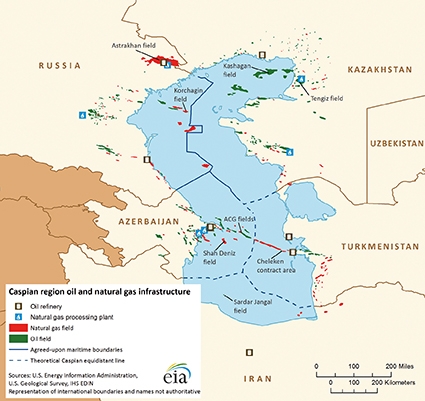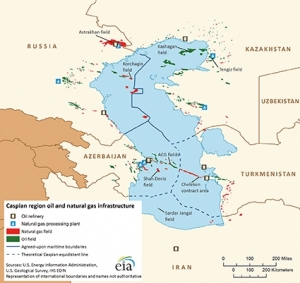The Caspian Declaration in More Detail
In the Kazakh city of Aktau on August 12, a historic event took place which will undoubtedly determine the prospects for development and cooperation of the Caspian countries.
In Aktau, at the 5th Caspian Summit, after 22 years of negotiations, the Convention on the status of the Caspian Sea was signed, likened to a "Constitution of the Caspian." The convention was signed on behalf of the Caspian countries by the presidents: of Azerbaijan - Ilham Aliyev, Iran - Hasan Ruhani, Kazakhstan - Nursultan Nazarbayev, Russia - Vladimir Putin, and Turkmenistan - Gurbanguly Berdimuhamedov.
Jalil Khalilov, Ph.D. in Philosophy, Colonel, Deputy Chairman of the Organization of Veterans of War, Labor and Armed Forces of Azerbaijan, noted that the way to the final text of the convention was not easy. “In 1996, when an international expert group was established to coordinate the interests and wishes of the Caspian countries, the original requirements were so contradictory that it seemed the development of an agreed text was an unrealistic task,” he said. “It became necessary to justify and adopt a number of fundamental, extraordinary solutions.”
“The required geographic assessment of the Caspian Sea was complicated by the fact that oil and gas resources in the Caspian Sea are unevenly distributed. According to the adopted convention, the area of the water surface of the Caspian Sea remains in the common use of the parties, and the bottom and subsoil are divided by neighboring states into plots by agreement between them on the basis of international law,” said Khalilov.
All parties agreed that the extraction of oil and gas, their transportation, in whatever part of the Caspian Sea they occur, should be transparent and ensure environmental safety, and that the navigation, fishing, and laying of pipelines should be carried out in accordance with rules agreed with the neighboring country.
Consideration of geopolitical and military issues was also of great importance. One of the main points of the adopted convention can be considered a provision on the inadmissibility of the presence in the Caspian of the armed forces of third countries.
"At all stages of the negotiation process, the initiating role of Azerbaijan was significant. This convention was much needed. There is no doubt that compliance with this convention will bring peace and prosperity to the peoples of the Caspian countries,” Khalilov said.
By Dimitri Dolaberidze












